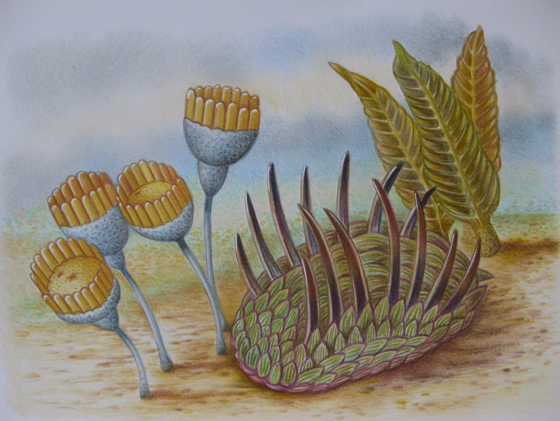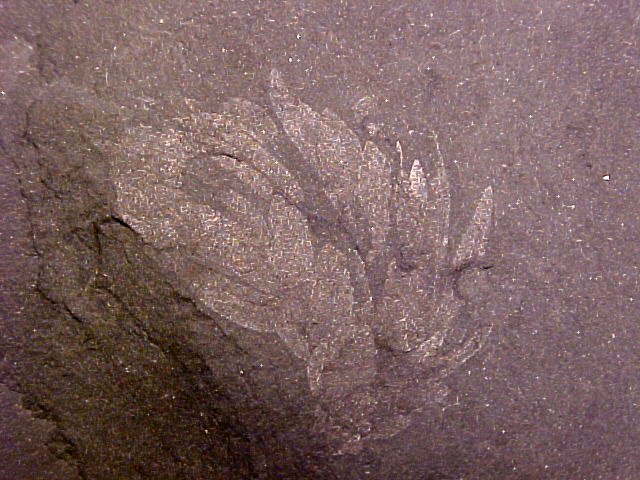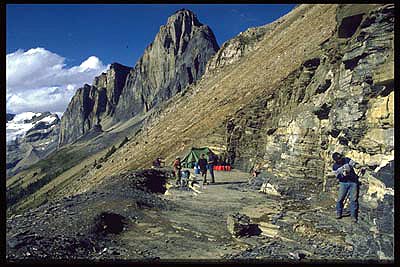
The Burgess Shale is a pretty amazing place of historical significance. One of its many unique organisms is the Wiwaxia. Wiwaxia is a genus of soft bodied, scaled-covered animals. These organisms date back to the upper Lower Cambrian to the Middle Cambrian. Their size ranged from 0.13 to 2.00 inches in length. Wiwaxia was a bilaterally symmetrical animal. Seen from the top the body was elliptical with no distinct head or tail. And viewed from the front, or rear, it was rectangular. The wiwaxia's flat underside was soft and unarmored. Little is known regarding the internal anatomy. In addition, it appears that they did not have eyes or tentacles. They had long dorsal spines that may have been a defense against predators. The wiwaxia appears to have crawled on the surface of the sea-floor feeding on particles that that fell from higher levels of the sea. It probably moved via muscular contraction because there are no signs of legs and was probably too large to move on cilia.



